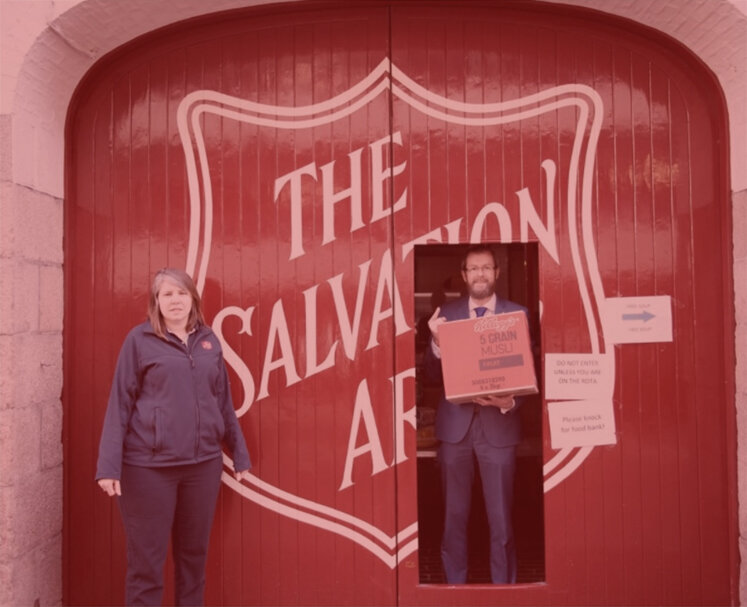A Small Islands Response to the Pandemic
Image credit - Henry Barnes
When the pandemic hit our shores in March, 2020, our Government swung into action with support schemes such as Coronavirus Response Emergency Support Scheme (CRESS) a co-funded payroll scheme (a more generous equivalent to the Furlough scheme in the UK) and enhanced protection for tenants in terms of evictions and rent rises. This all added up to a package of measures that many of our citizens have benefitted from in various ways.
Fiscal stimulus measures in the shape of £100 payments for Income Support recipients (the equivalent benefit of Universal Credit in the UK) were innovative ways in which to boost economic activity and public confidence for the most vulnerable in our society.
The government then decided to extend this scheme and pay every citizen in Jersey a £100 card or voucher and this has been a fantastic opportunity to learn exactly how this type of economic stimulus works in real life. The instructions were “treat yourself” and it is clear that this £11M spend has produced feel good factor results which far exceed the relatively small sums of government money that were involved.
£100 Spend Local Card (gov.je)
Every man, woman and child in Jersey received through the post a Mastercard that was loaded with £100. These cards were activated online or via the telephone and were timebound to be spent within two months of issue.
The anonymised data collected from this scheme will be such a powerful and useful way of tracking how people used this money. Will local businesses benefit and, if so, which sectors will benefit most? Will charities indirectly benefit by recipients choosing to make a donation after spending the allotted funds?
The decision to make this a universal payment is an interesting one. For years governments across the globe have considered the concept of a Universal Basic Income and some jurisdictions, notably Alaska, have implemented schemes that pay out to the whole community, the overriding principle being that people can best decide what to do with this money rather than leave it to the government.
The decision to make our £100 payable to the whole community and the subsequent analysis of the data collected by tracking this spend, may just prove to be the lightbulb moment that builds the modelling and provides the opportunity for our benefits system to move in a new direction.
The cards are still valid until 2022 and the population is hopeful that the £100 spend initiative may yet be repeated.
What Have We Learned?
“The future isn’t what it used to be.” That is a thought-provoking quote that resonates in these pandemic times as plans continue to be put on hold and the daily disruption to our lives endures for an indeterminate amount of time while scientists scramble to produce more vaccines.
There is no doubt that we are all finding new ways of working and many would argue that these new ways are in fact, better ways. That the continual progress towards prosperity was somehow an unachievable goal that set us all on never-ending treadmills. One thing is for sure, lockdown has caused many to re-evaluate their lives, relationships, working conditions and job prospects. The reset runs all the way from individual to global proportions and we all have a part to play as we face the coming months and years ahead.
If this reset is to be truly inclusive, we need to ensure that nobody in our society is left behind, that people continue to be supported and valued and that all our institutions are as accessible as they possibly can be.
Many are now seeking to continue these charitable efforts and devote some time to worthwhile projects and to offer their skills to the many organisations that support the most vulnerable. Long may that continue.
More about the author
Image credit - Jersey Evening Post
Malcolm Ferey - @MalcolmFerey
My name is Malcolm Ferey I live on the small Island of Jersey which is a self-governing crown dependency situated in the Channel, 14 miles from the coast of France. We are a 9x5 island inhabited by around 108,000 people who, contrary to popular myth, are not all millionaires.
My career background began with a period of time in the finance industry, where I gained a qualification in financial planning. I then moved into the Civil Service and worked at the Social Security Department, having responsibilities for fraud and compliance. After obtaining a qualification in the Data Protection Law, I went on to become the Department’s Data Protection Officer. I also studied for a qualification in the Freedom of Information Law at this time.
I took up the position of Chief Executive at Citizens Advice Jersey in November, 2010. After 11 years, in June 2021 I left my CAJ role to join local head injury charity Headway Jersey - the charity provides support, information and services to people in Jersey who are affected by brain injury.




